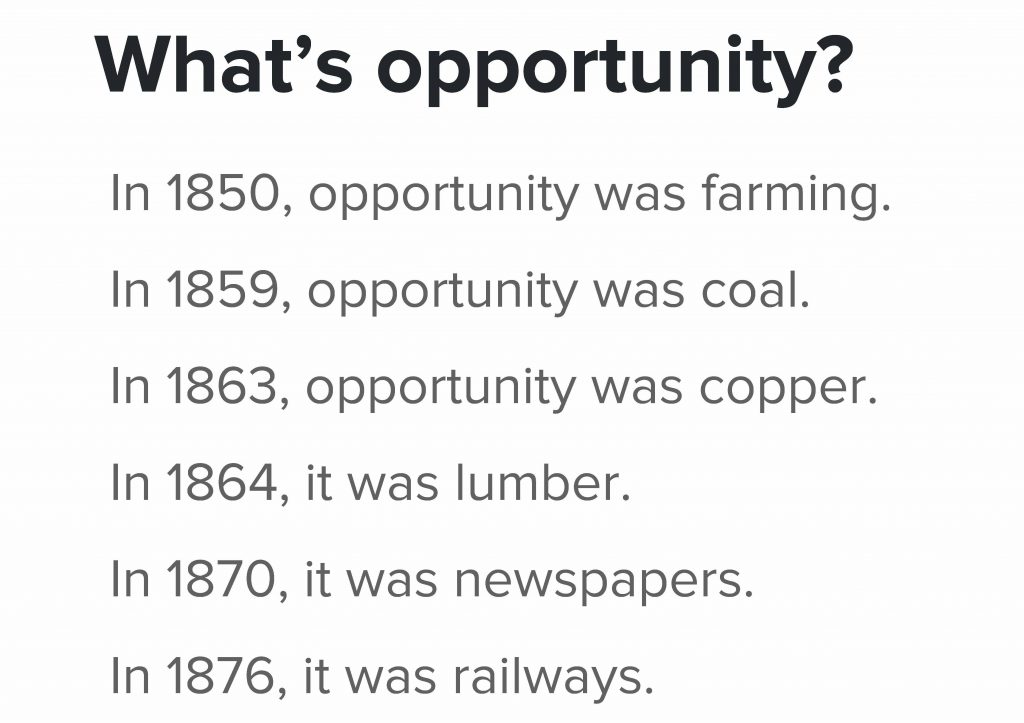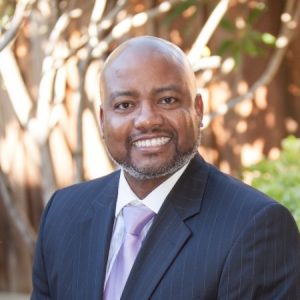Antioch Council decides on “Opportunity” theme for City’s branding effort
Tuesday, August 14th, 2018
Graphics from the slides in Evviva Brands’ presentation to the Antioch City Council on Aug. 14, 2018.
“There’s a lot of hope with good things to come…Antioch is where it’s happening. Opportunity is right here… It may be the last place in the Bay Area that has opportunity for everyone.” – branding consultant David Kippen
By Allen Payton
During their meeting on Tuesday, August 14, 2018, the Antioch City Council heard a report about the city’s branding effort by consultant David Kippen of Evviva Brands in which they agreed the theme will be “opportunity”. Brand & Messaging Update_ 14 Aug 18
During his presentation, Kippen shared with the council about his team’s four-month “discovery phase”, as Economic Development Director Kwame Reed described it, during Reed’s first time at a council meeting in his new position.
“First off…this is a report on a work in progress…a gut check to see if this feels right to you. We’re looking for a big, broad message,” Kippen said. “When we talk about a brand, it’s really a simple thing. It has three parts. It’s a noun. A name. There’s a monetary part, an underlying value. The third part is action…where we find value in Antioch, how we want people to act, think and believe about Antioch.”
“We audited city messaging going back several months…to understand as a baseline what came before us,” he explained about their discovery process. “We interviewed city leadership, city staff, city leaders, a variety of community leaders. We conducted a variety of listening sessions. We participated in ride-alongs with police. We had one staff member stay in a variety of Air BnB’s throughout Antioch.”
“Where do we find themes and consensus?” Kippen asked. “When we first came to the city…it was the best of times, it was the worst of times. Antioch does seem to be a city divided. There are some doing quite well, and there are others who are working hard to get by. Some angry people, here. Some optimistic people, here. There are a lot of divisions. A lot of frustration.”
However, he then said, “By in large, most the people we talked to want to get past that. We want to move on. It’s part of what Antioch is but it’s not what we want to be known for. People want it to be better. We see better massively overweighing” the focus on the negative.
“Without the city doing anything it will get better…with an expanding economy for 10 years in a row,” Kippen pointed out. “This city is doing a lot. Police and code enforcement are having an effect. Very recently crime was the primary worry, today it seems to be blight. It’s moved from security and fear to blight.”
“There are projects getting done across the city. Some big, Smith’s Landing and BART. Some are much smaller,” he explained.
“There’s a lot of hope with good things to come,” Kippen stated.
“Is there something that ties everything together?” he asked. “It’s opportunity.”
“It’s such a common word. It’s powerful word. It’s an important word and it has a lot of resonance with residents in Antioch,” Kippen said. “It means you have a chance. It means you can do something. It doesn’t mean you have to cure cancer. But it does mean you can do something.”
“It’s also quintessentially California. The California Dream…you can reinvent yourself, you can make something of yourself,” he added. “And Antioch is where it’s happening. Opportunity is right here. It’s been fundamental to Antioch since day one, before statehood.”
“It may be the last place in the Bay Area that has opportunity for everyone,” Kippen stated.
“It starts back…with John Marsh. A Harvard-trained doctor,” he continued. “He’s also the guy who sold the Smith brothers the plot of land. That’s what is celebrated at the bottom of F Street. That’s where the Smith brothers managed to get the first shipload of people to settle here.”

“In 1859, it was coal. In 1863, it was copper. In 1864, it was lumber. In 1870, it was newspapers and In 1876, it was railways,” Kippen shared. “But it didn’t stop there. We have vineyards in Antioch. That’s remarkable. Or a greenfield property. Start a media company. I didn’t say a cheap home. Opportunity isn’t about being a bedroom community.”
He also mentioned a list of thing that are “in our way.”
“What we also heard was ‘Please, please, please don’t put lipstick on a pig. Don’t try to song and dance your way out of the challenges.’ The challenges start with bad press, real things. Negative coverage,” Kippen explained. “Fortunately, the trendlines in media tend to be slightly improving, where positive sentiment is running ahead of negative sentiment. But the press we’ve had is real. Crumbling infrastructure, bad roads, blight and crime. People wanted to know who to blame.”
“Opportunity is a chance not a gift. It’s not free. It’s not easy. It’s work,” Kippen explained.
 What To Do, he asked and shared next.
What To Do, he asked and shared next.
“As far as the media standpoint, part of the effort has to be to get Antioch to come to Antioch. Whether it has to be getting 94531 to come to 94509 or vice versa…we need to knit the two back together. It’s going to require a lot of work.
He spoke of the need to include, “influence leaders in Antioch who drive the good in Antioch.”
“We’re thinking of the product…the packaging and the promotion,” Kippen shared. “Our focus is from a product stand point, how do we talk about opportunity. Antioch’s opportunity. How do we explain that? How do we get Antioch engaged with Antioch? How do we talk about Antioch to the rest of the Bay Area? How do we do a good job of not sweeping things under the carpet, but…looking at things that are already in the vision strategy? What are simple fixes? What can we do on a low-cost basis?”
Looking at the different locations in Antioch, clearly they’re going to need different messaging,” Kippen concluded.
Council Member Tony Tiscareno was the first to speak on the matter.
“I was intrigued by your perception of uniting the two Antiochs,” he said. “I love that idea. What do you think about splitting our city into four different sectors, now? I’m just curious of your mindset…of putting the two cities together…trying to bring in some from the ’31 area code to the ’09 area code? Was this a pre-districting mindset?”
Kippen replied, “The idea of opportunity ladders up the economic scale. You hired us, but we are trying to work for the entire city. Without respect to districts, that’s what we should land on. With respect to the districts, that strikes us as a fundamentally political effort. We’re talking about the economic aspect. It’s less about erasing lines within Antioch…than it is about macroeconomics in which a rising tide raises all boats.”
Tiscareno then said, “I still think we’re one city. We just happened to grow over the last 20 years. We just happened to get another ZIP Code.”
“Everyone felt that the heart of Antioch is the downtown,” Kippen shared. “There was a strong consensus that Antioch is one place and people have strong fidelity to that one place.”
Council Member Monica Wilson then had “A couple questions…about press and promotion. That’s a very important piece of your overall presentation.”
Kippen responded, “The difference between our firm and a public relations firm as far as a crisis response. We are in the business of saying we want the city to unite. We’re working on is putting together an editorial calendar… getting them all aligned on messaging standpoint.”
Wilson then said, “Maybe it’s just me. I thought we were going to get more actionable stuff. An outline of a gameplan of what the next steps could be.”
“The last page of the presentation is an outline of what we will be presenting to you,” Kippen said. “We wanted to get you a report on the general theme of opportunity.”
Mayor Sean Wright liked the idea of opportunity as the theme.
“I want to thank you for coming and your presentation. I do like that direction. I do like the idea that Antioch is opportunity,” he said. Something we can market from a branding standpoint to businesses that we want to come, to people who want” to come. I would just ask council’s input… so David can have direction.”
Mayor Pro Tem Lamar Thorpe was next to respond to Kippen’s presentation.
“You know I didn’t vote for this,” he state. “But I do like opportunity. It speaks to your point of why people come here. I think you brought up some very good points. Some of the information you received was similar to the two polls we did with input from 2,000 people. It’s in line with what you’re doing as far as branding. I love the idea, the concept of opportunity.”
Tiscareno then said, “Opportunity in my mind is creating positivity with whatever we’re going to do as a city. I like that concept. What are we going to do with that opportunity? I think you’re get more dialogue and feedback. I want to be able to look at these opportunities and dream…and what we’re going to do in the next few years to eliminate the perception out there. I hate that word. But, if we can eliminate that type of language…through opportunities and ideas, I think you’re going to get a lot of feedback. I’m just waiting to see what the next step is before I give more input.
Council Member Lori Ogorchock then shared her thoughts on the matter.
“Reading what’s in our way, I agree,” she said. “I truly don’t want to miss this opportunity. I’m encouraging you to keep going in the direction you’re going. I don’t see the bad press any more. I think it is the right opportunity, right now. I’d like to see the two ZIP Codes come together. I think you’re going to have some difficulties with districting the way the districts were split down the middle of the freeway.”
Wilson reiterated, “I think we’re all in agreement with opportunity. I love opportunity.”
“It’s very important to us, we think this is the idea,” Kippen said. “We’re going to make recommendations to staff about spending some money, clearly marketing this.”
He spoke of the city’s revised vision plan. “We’re going to build off of that.”
Wilson then said, “It’s a wait and see for me.”
Wright concluded the agenda item by stating, “I appreciate with what you’ve done in here of not only opportunities in the future, but opportunities in the past.”






















